Last updated on July 8, 2021
It’s been in the works for some time, but recent major headlines speak to what the end of Google’s third party cookies mean for marketers and their companies. If you’re not up to speed, Google’s announcement of ending its third-party cookies potentially sets a new industry standard, limiting companies’ abilities to retarget consumers on the web.
“Users are demanding greater privacy–including transparency, choice, and control over how their data is used–and it’s clear the web ecosystem needs to evolve to meet these increasing demands,” says Google.
According to The Drum, Google is gearing up to replace third-party cookies with something called the Federated Learning of Cohorts (FLoC) – a privacy-focused solution intent on delivering relevant ads “by clustering large groups of people with similar interests”. Accounts are anonymized, grouped into interests, and more importantly, user information is processed on-device rather than broadcast across the web. Google will make FLoC-based cohorts available for the public this month. By Q2, advertisers can start testing FLoC-based cohorts in Google Ads.
While many marketers have been preparing for this day for a while, we wanted to find out from Canadians what consumers think about the use of their data for marketing purposes.
Turns out, most consumers are in the know about what data privacy means.
About 4 in 5 of respondents have at least “a little” familiarity with data & privacy laws/regulations.
How familiar are you with data and privacy laws/regulations?
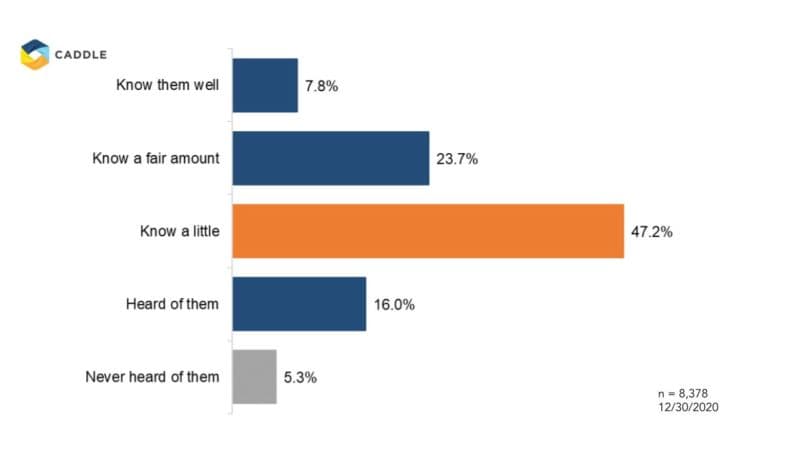
About 74% of respondents believe that Facebook and Google use their data for personalized ads.
Which of the following companies do you believe uses your data for personalized ads? (select all)
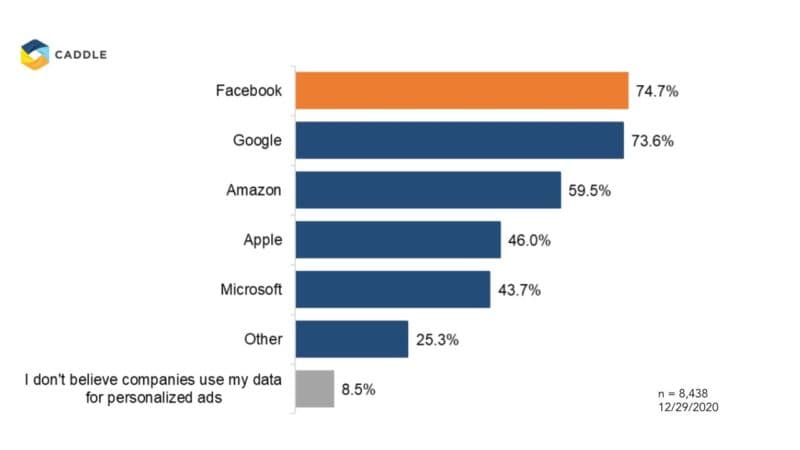
Do consumers care about third-party cookies?
While data privacy seems to be on consumers’ minds, there may be an opportunity to educate on the different types of data collection, and what they’re used for. From the Caddle panel, we discovered that while 4 in 5 respondents don’t think that personal data should be used for commercial purposes, approximately 50% of respondents still prefer to see ads online that are relevant to them. This conflicting response suggests that personal data is something consumers are willing to provide if it means seeing more ads relevant to them (personal marketing).
Unsurprisingly, younger generations (Millennials and Generation Z) are less likely than older generations (Baby Boomers) to be against the commercial usage of personal data. Again, this supports the notion that consumers are not opposed to data collection, but merely require better knowledge on the collection process to understand its purpose. And perhaps, companies should start thinking about ways to compensate users for their personal data.
Caddle found out that consumers want to be compensated for their data if companies are collecting it. Only 4.4% of respondents do not seek compensation of any kind for personal data collection from companies.
How would you want to be compensated for sharing your personal data? (select all)
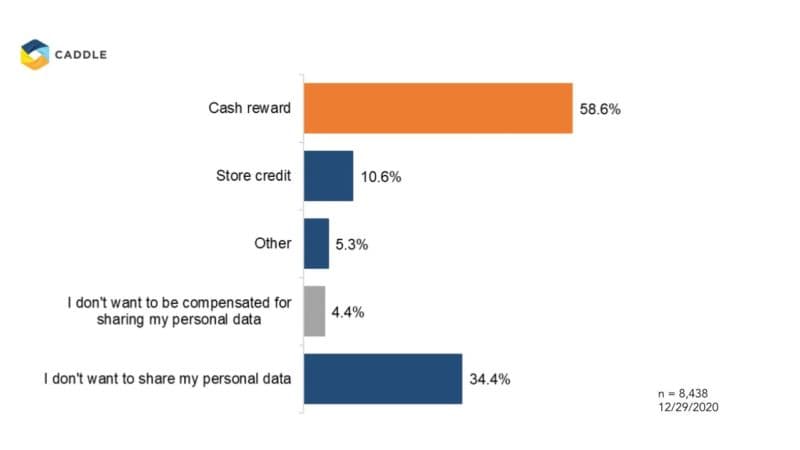
Now at the end of the third-party cookie, the importance of first-party data has never been more pertinent to a company’s success. Caddle’s first-party data has the wealth of insights waiting to be discovered by you and your brand. With Google’s plans to replace third-party data with FLoC, Jed Schneiderman– marketing, media, and tech executive- says that Caddle can help you navigate this new, uncharted territory of FLoC:
“Use Caddle to better understand your audience and then you can make better use of the new cohort way of targeting.”
Key Takeaways
No.1 |
50% of Canadians still prefer to see ads online which are relevant to them, therefore the end of third-party cookies should not equate to the end of personalized marketing for brands.
No.2 |
Consumers are not against personal data collection, but do require better knowledge on the collection process to understand its purpose, and how it brings value to them.
No.3 |
User compensation for personal data collection is looking like a viable strategy for advertisers, with 1 in 3 consumers in favour of sharing data for improved advertising. As we see further proliferation of platform as a service (PaaS) business models, the market for first-party consumer panels will be at the forefront of many industry conversations in the coming years.
No.4 |
Caddle grants access to a first-party audience for marketers to test a multitude of important company-wide considerations including ad creatives, messaging, and consumer profiles. Caddle even offers first party acquisition with rewards!
Interested to learn more about Caddle Capabilities? Reach out to learn about a free demo!
*Disclaimer: all data presented is owned by Caddle and has a Margin of Error of 1% or lower.
Get better business insights, faster, with Caddle.
Want more Caddle Insights? Sign up to our email list!


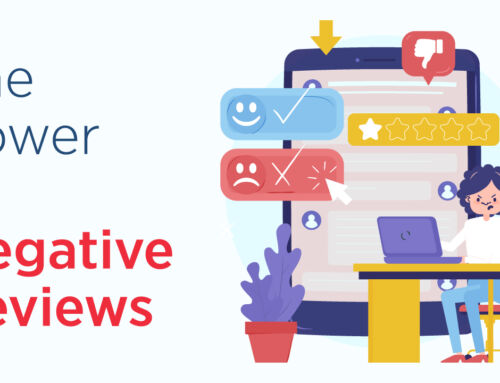
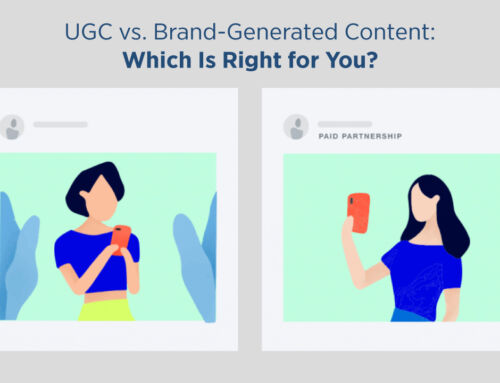
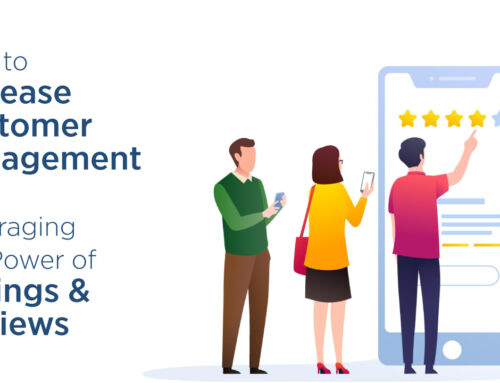
Leave A Comment